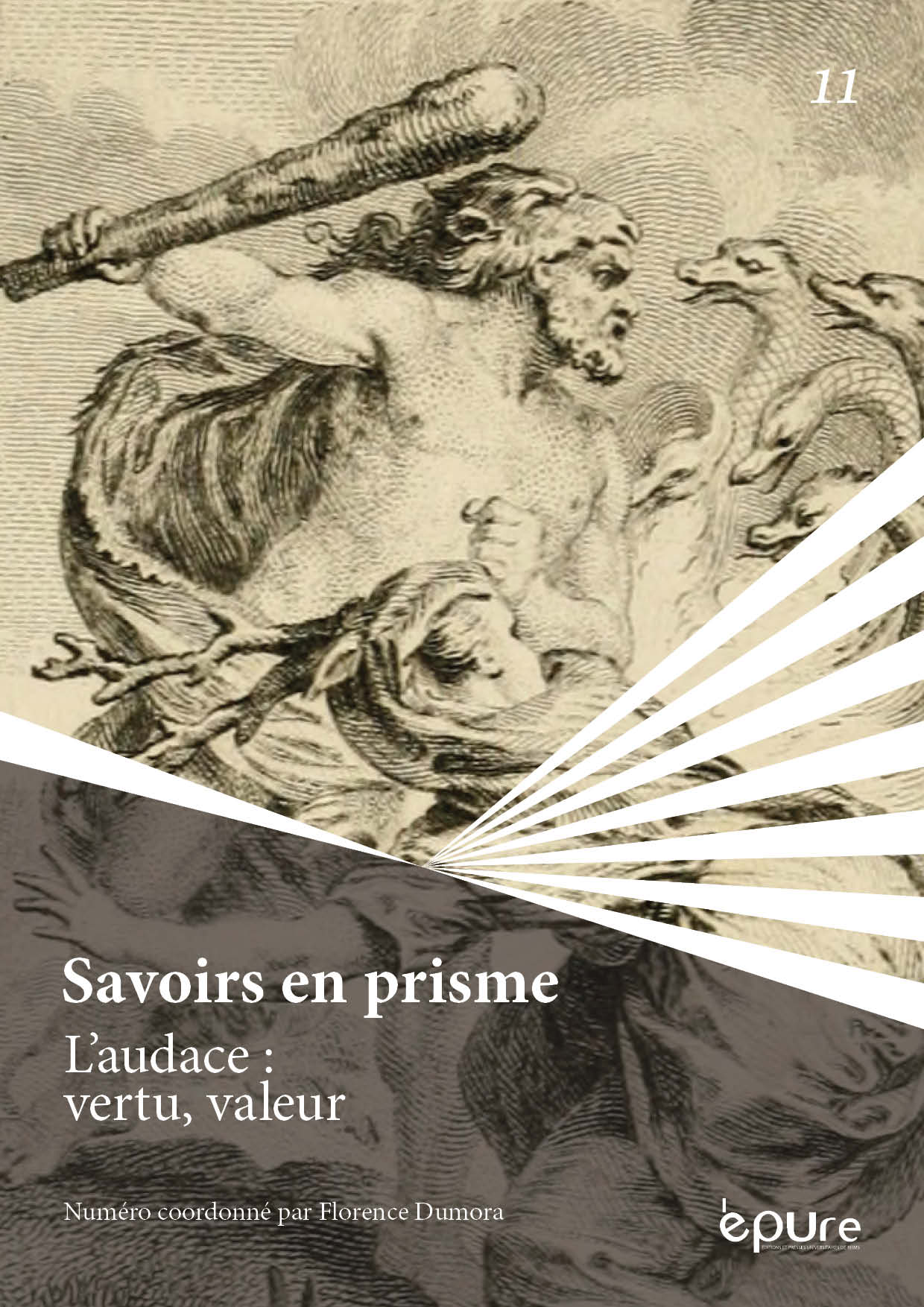L’ audace : du manque d’égards (anaideia) à la transcendance du crime
Abstract
The aim of this paper is to study some of the aspects of audacity (tolma, audacia) in relation to crime in ancient Greek and Latin texts. Audacity is characterized by two schemes, the first is ethico-political, implying a moral deficiency characterized by the lack of respect (anaideia), and by insulting arrogance (hubris) and whose support is psycho-physiological, the thumos, an untranslatable word (something near to our « heart »). The second paradigm is metaphysical, inherited from the mystical and magical cosmo-theogonies, where audacity is both deified and assimilated to a figure of evil that gives rise to an « archive » in Foucault’s sense, illustrated by the myth of the Roman emperor Nero, whose fascination still operates.
Copyright (c) 2019 Savoirs en prisme

This work is licensed under a Creative Commons Attribution-NonCommercial-ShareAlike 4.0 International License.


